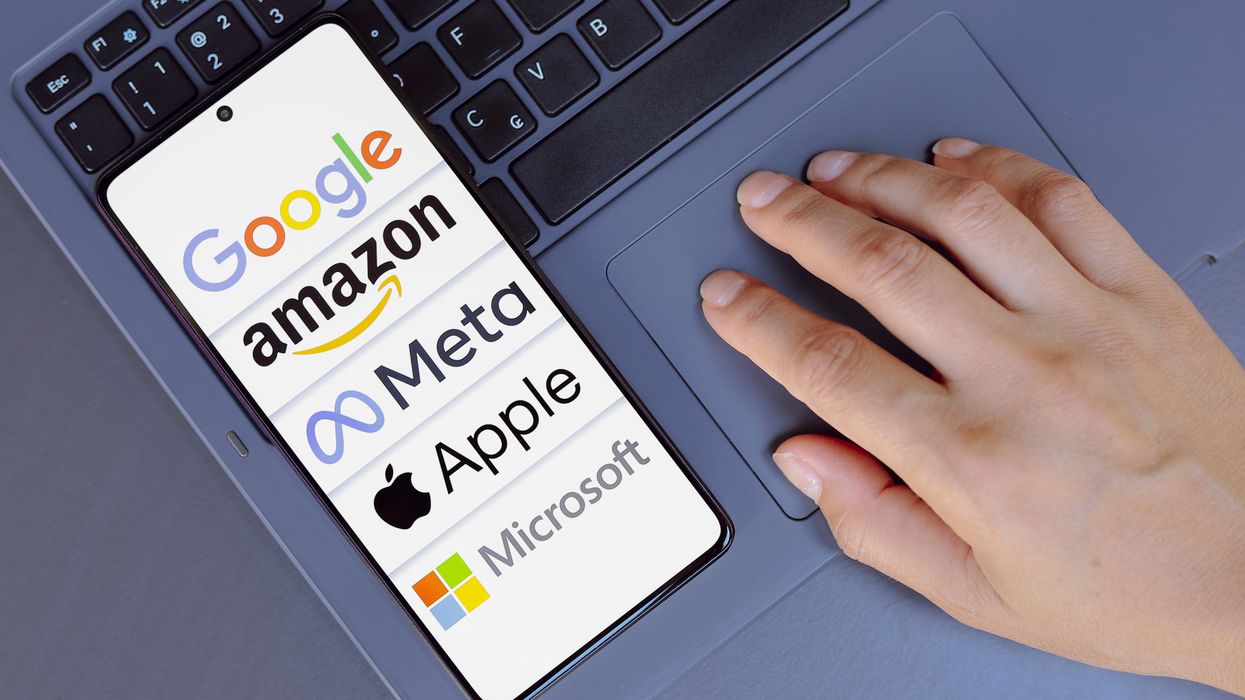Frazier is an assistant professor at the Crump College of Law at St. Thomas University and a Tarbell fellow.
NASA defines a black hole as “a place in space where gravity pulls so much that even light can not get out.” This celestial abnormality can even distort space-time. Though invisible to the human eye, a black hole is detectable by the extent to which everything around it is morphed to its will.
The same is true of our biggest corporations. The total reach of companies like Amazon, Meta and Google seemingly exceeds human capabilities. Yet, the extent to which our laws, culture and daily lives revolve around these corporate black holes reveals a hard truth: Fair play does not characterize our economy. The best ideas may never come to fruition and the smartest people may never realize their potential — they lack the escape velocity necessary to operate beyond the pull of the black holes.
Affording every individual economic opportunity and liberty is at the core of our antitrust tradition. It’s the idea that motivated Theodore Roosevelt, William Howard Taft and Woodrow Wilson to reorient our approach to goliath corporations. They realized that when some companies have an unearned advantage over others, there’s a need to help level the playing field. Roosevelt used publicity to call out CEOs who wanted to flout the rules. Taft leaned on the courts to enforce existing laws. Wilson created the Federal Trade Commission to spot new corporate shenanigans.
Each president thought creatively about how best to curtail corrupt, fraudulent and just plain bad business practices. They succeeded … sometimes. They also fell short … a lot. Teddy couldn’t help but assume that his fellow gentlemen would only do right by the American people. His predecessors likewise paid close attention to the interests and demands of the elite class that bankrolled their campaigns and demanded passes from too much regulatory scrutiny.
Those shortcomings shouldn’t distract from the larger message: They each acknowledged that fair play was more important than unjust economic growth.
Fair play is missing from today’s economy. Consumers are trapped in the orbits of a few massive corporations. You can quit Facebook, but your friends will demand you join WhatsApp or Instagram. Your social media still resolves around Meta.
Startups are likewise roped into these economic black holes. Companies like Amazon will extract everything from novel threats. They’ll lure employees from small businesses, or emulate the products of mom-and-pop shops. And, if necessary, they will simply absorb their competition via an acquisition.
The long-term ramifications of giant corporate black holes are significant. Consolidation across several industries has had a particularly pronounced effect on workers and their wages. Leading antitrust scholars forecast that Americans could be earning upwards of $10,000 more in annual income under more competitive conditions. Competition would not only boost incomes but also stretch dollars further. As companies bunch together they also tend to jack up prices. Americans may also have more career opportunities in a more competitive economy. The dominant corporations in their respective industries generally hire fewer workers — driving down total employment.
The laws of anti-competitive gravitational forces under which corporate black holes trap us in their orbit may finally be coming to an end. Like Copernicus realizing the sun’s pull, federal officials have awoken to the democracy-sapping effects of corporate black holes. FTC Commissioner Andrew Ferguson, for one, acknowledged that “society reaps the benefits of free enterprise only if it protects the system from monopolies and fraud.” His colleague, Commissioner Alvaro Bedoya, has similarly called for the public interest rather than private profit to be at the center of our economic policies.
This emerging consensus justifies optimism but begs the question: How can individual Americans achieve the escape velocity necessary to wrest control over their economic fates from the biggest corporations? A full outline of those policy options exceeds the scope of this short essay. For now, the most important thing is realizing that our economy does not have to revolve around the priorities of corporate black holes. This Copernicus Revolution can serve as the basis for rewriting our collective narrative and understanding of what fair play means in the modern economy.




















